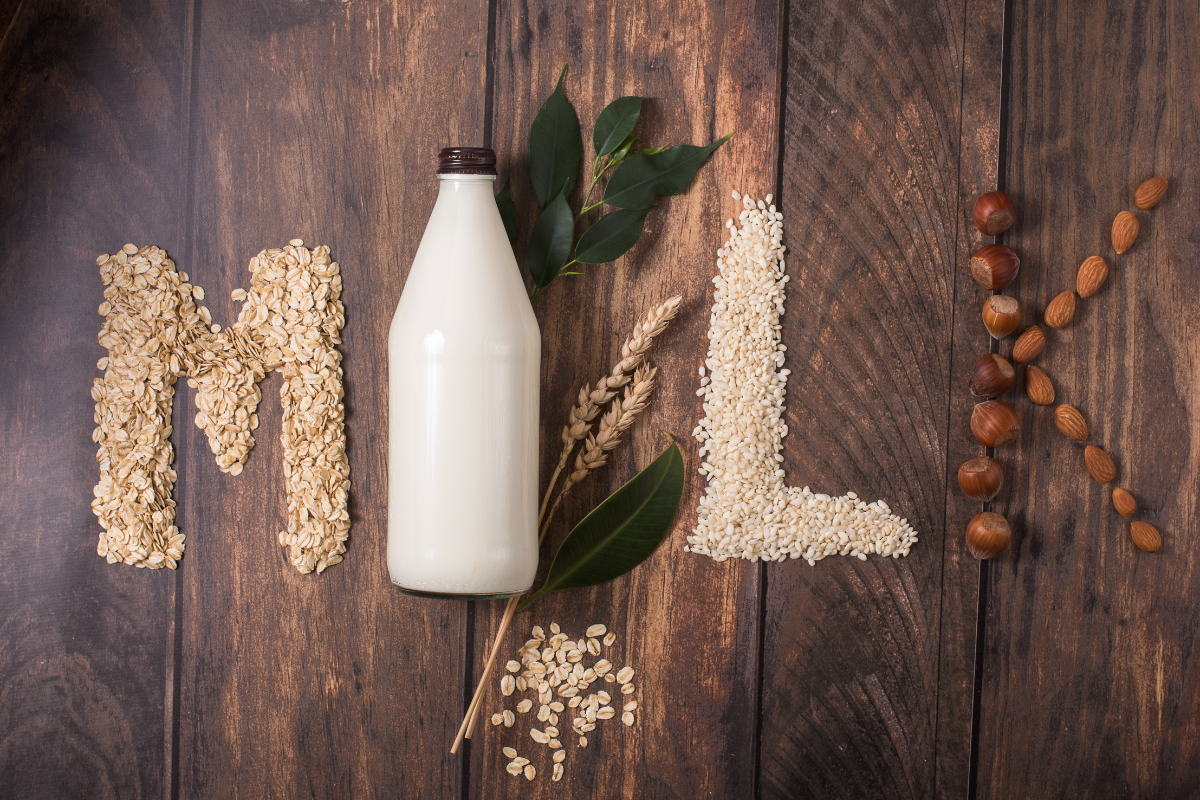
Which Dairy Alternative is Right for You?
The dairy aisle can be overwhelming these days. Which one to pick? Almond milk? Ripple milk? Oat milk? Not all dairy alternatives are created equal. Some barely contain any protein while others are loaded with added sugar. Review the chart below to compare the nutrient content of various dairy alternatives.
|
Type |
Serving Size |
Calories |
Total Fat |
Saturated Fat |
Protein |
| Whole milk
|
1 cup | 150 calories | 8g | 5g | 8g |
| Soy milk (unsweetened)
|
1 cup | 80 calories | 4g | 0.5g | 7g |
| Ripple milk* (unsweetened)
|
1 cup | 80 calories | 4.5g | 0.5g | 8g |
| Almond milk (unsweetened)
|
1 cup | 30 calories | 3g | 0g | 1g |
| Cashew milk (unsweetened)
|
1 cup | 25 calories | 2g | 0g | <1g |
| Oat milk (unsweetened) | 1 cup | 45 calories | 3g | 0g | 1g |
*Ripple milk is made from pea protein. Nutrition information may differ slightly among brands. Nutrition information from www.silk.com & www.ripplefoods.com
Which dairy alternative is similar in protein content to cow’s milk?
Cow’s milk contains 8 grams of protein per cup. Soy and ripple milk contain a similar amount of protein to cow’s milk. Unfortunately, almond, cashew, and oat milk are not significant sources of protein. If you are using a dairy alternative that is not a significant source of protein, either consider choosing a different type or be sure to utilize other protein-rich foods (beans, lentils, tofu, eggs, meat, etc.) into your meal plan to ensure adequate protein intake.
What about the sugar in milk and dairy alternatives?
Cow’s milk contains natural sugar in the form of lactose. Flavored cow’s milk will have both natural and added sugar. Sweetened dairy alternatives contain added sugar. No matter which type of dairy alternative you choose, pick an unsweetened or lightly sweetened one to decrease your added sugar intake.
My child can’t tolerate cow’s milk. Which one should I choose?
Whole milk or soy milk is recommended when the child turns one due to the fat and protein content to support growth and development. Check with your child’s doctor or dietitian to choose the best milk to meet your child’s nutritional needs.
Written by BWS Dietitian-Melissa Morningstar Vajas RD, LD
Continue reading October 2022 Newsletter: Soup Season
